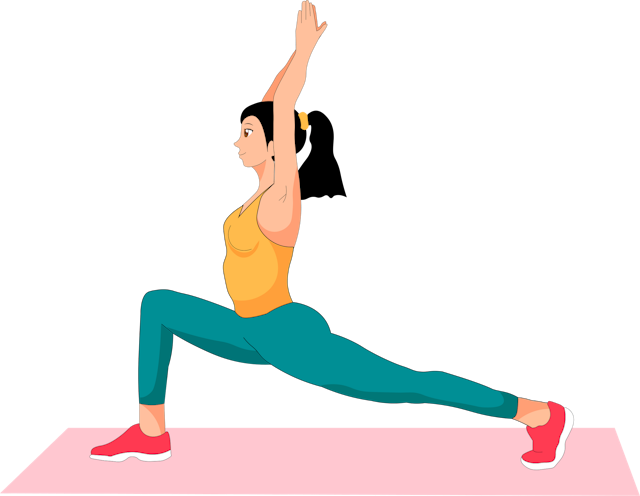I believe most of us have a common fear: the dentist chair. It is usually a place where not so much fun happens, there are noises and sharp instruments, not to mention pain and discomfort in the mouth. The more I study about our body as a whole, and how each system and each organ connects to each other, the more I understand the importance of dental health. From airway issues to cavities the body is sending a message for help, and it is important to have a qualified and, preferably, holistic dentist to walk those issues with us. I had been postponing a dental surgery for years. I have always disliked dentist visits and couldn't really understand how big of a deal these appointments were. Truth is, as I try to teach my children that "we gotta do what we gotta do", I had to finally face my fears and schedule a dreaded gum graft surgery. As I pause and reflect on how Nutritional Therapy has impacted my life, I feel grateful for having the education I have today, and if this post helps at least one person who, just like me, needs to have this or maybe another procedure done, I'll be more than glad!
My first step in preparation for the surgery was actually taking care of my overall health. I had blood work done, I was exercising regularly and taking my supplements daily. This is such an important step, because if your body is working well, your chances of a smooth recovery are way higher. My eating habits were improving and I no longer had the sugar cravings I used to have (blood sugar regulation is a blessing, y'all!). No matter what kind of procedure you need to have, refined sugar is never a friend to your body. We were never meant to eat the amount of sugar we consume in America, just check all the health issues we have on the rise that are linked to high sugar consumption (diabetes, fatty liver disease, chronic inflammation, heart disease). The problem here is that sugar lowers our immune system function, just as I briefly mentioned in this post. This alone is a big tip for any surgery: significantly reduce your sugar consumption, it will help you heal faster. I avoided refined sugar completely during my first two weeks of post op period.
Hydration is also an important factor before and after any surgery. Providing our body with the water it needs to maintain proper function (blood viscosity and nutrient transportation, for example), adding electrolytes in order to help with mineral absorption is essential. For the first few days post surgery I preferred to focus on liquid meals, because that is what felt more comfortable in my mouth. Protein shakes and bone broth were my top choices, since both are full of amino acids and collagen that will help with tissue healing and growth and also provide energy, especially since it's hard to have a regular diet for a few days. I also added teas (being careful with the water temperature) like dandelion to support my working hard liver (helping to detox all the medications from the procedure such as anesthetics and also antibiotics I had to take for a short period), and also marshmallow root to support the intestinal mucosa.
For meals I focused on having fiber, vitamins C and D, and, again, lots of protein and healthy fats to help with the recovery process. Vitamin C is needed for collagen production in the body, it also helps with wound healing, helps maintain bones and cartilage, and boosts immunity (which I really needed after a round of antibiotics). An example of a simple and affordable meal I had several times post op is a can of wild caught sardines, baked or mashed sweet potatoes and some sea salt and olive oil. In this simple meal I had omega 3s, antioxidants, and lots of the vitamins and healthy fats I needed for recovery.
For pain and healing support I used homeopathics such as arnica for pain in general, staphysagria for wound healing, and hypericum for nerve pain specifically. I also used phosphorus right after the procedure to help with detoxification from the anesthesia. I have to be honest and tell you that for pain management I needed ibuprofen once, on the first day, but I wanted to avoid overwhelming my liver, since I already had both antibiotics and anesthetics. I wanted to find support for my body in natural ways, so to add to the homeopathy remedies, I chose red light therapy for pain and healing and I would use it for 20 minutes, 3x a day. I noticed it really helped me to manage the pain and it also helped the gums heal faster.
Overall, I think this whole experience was way better than I was expecting. I was able to do stretches four days after the surgery (to keep the body moving is so important!) and a week later I got back to weightlifting (at a slower pace, of course). Three days post op I was already baking sourdough sandwich bread for my family. I am happy with the results and also focused to keep on supporting my body to recover from the procedure as an ongoing process. It takes months to fully heal from a gum graft surgery, and months to heal the digestive system from antibiotic use, so I'm still focusing on eating foods that will help my digestive system and repopulate the gut with all the good bacteria that was lost (did you know exercise also helps with this?). I'm so excited to have used Nutritional Therapy as a tool to support my body, and I look forward to helping others who might need nutritional guidance on procedures like this.
Disclaimer: all of the information in this post is part of my personal experience. All I did was according to bio individuality. If you need support from a Nutritional Therapist, contact me or another qualified professional to find a plan that works for you!



